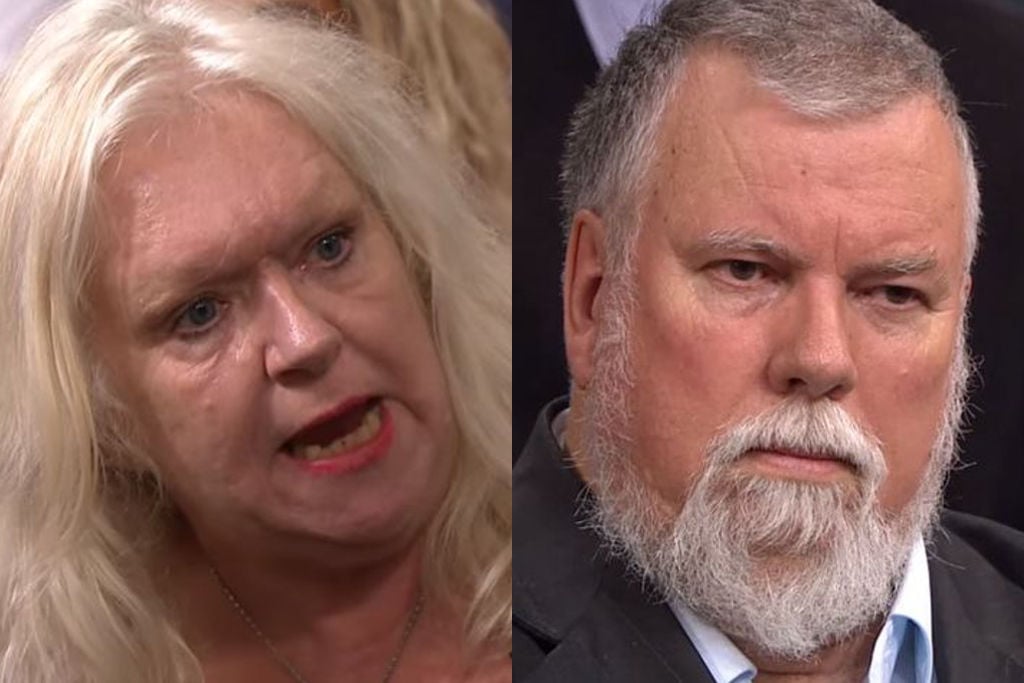A Port Arthur Survivor Had Some Harsh Words For A Pro-Gun Politician On ‘Insight’ Last Night
"Have you ever met anybody who's been shot? This might be your first opportunity."

This month marks 20 years since the 1996 Port Arthur massacre, in which gunman Martin Bryant killed 35 people and wounded dozens more. The massacre prompted then-Prime Minister John Howard to introduce sweeping restrictions on gun ownership, which — despite vocal public opposition from guns rights groups at the time — have seen a dramatic and long-term decline in the number of gun-related deaths and injuries ever since.
While widespread support for Howard’s reforms has endured, the issue of gun ownership has periodically flared up over the last year, in large part to a similar argument raging in the United States. Both sides of the gun debate in the US regularly invoke the Australian example, either as evidence that sensible gun control measures can save lives, or as proof that the government wants to take your guns because [insert incoherent angry-old-man rant here]. Howard himself has given numerous defences of his move to curb gun ownership on American television, and last night he took to SBS’ Insight roundtable special on gun policy in Australia to do the same.
The wide-ranging, forensic and at times confronting episode featured a broad spectrum of people from all sides of the gun debate. NSW Shooters and Fishers upper house politician Robert Brown was the staunchest advocate for Australia’s firearm laws to be dramatically relaxed, arguing that they restrict personal freedoms and lump law-abiding enthusiasts in with violent criminals.
Many don’t realise the higher standard that law-abiding #firearms owners in Australia are held to #safety #auspol #InsightSBS. RB
— Shooters & Fishers (@sfpAustralia) April 5, 2016
My cousin was shot dead at Port Arthur. I understand why some farmers need guns- secured- but noone else. #insightsbs
— julie boyd (@jboyded) April 5, 2016
But Brown found some passionate opposition from two people with first-hand experience of the horrific effects of gun violence — Port Arthur survivor Carolyn Loughton, and Alpha Cheng, the son of police officer Curtis who was shot dead outside Parramatta police headquarters by 15-year-old Farhad Khalil Mohammad Jabar last year. Confronting Brown’s complaints that 28-day waiting periods and background checks are too prohibitive, Loughton angrily revealed the extent to which being shot twice by Bryant in 1996 has ruined her physical and mental wellbeing.
“Have you ever met anybody who’s been shot? This might be your first opportunity,” Loughton told Brown. “I was shot in my back, in my shoulder. I’m still having surgery 20 years later…I don’t have a life anymore. You talk about waiting 28 days? You talk about the cost to you?”
In discussion with Cheng, meanwhile, Howard said he believed our existing firearms laws “are not adequate” as they stand and expressed in-principle support for “sensible strengthening” of Australia’s gun laws, as well as a second gun amnesty.
Both Cheng and Loughton have been vocal in their calls for Australia’s gun laws to be revised and strengthened. In an op-ed for the Sydney Morning Herald yesterday, Cheng recounted his father’s death and argued that loopholes and relaxations in gun policies need to be reversed. Loughton, whose 15-year-old daughter Sarah was among those who died at Port Arthur, has long campaigned for more restrictions on firearms.